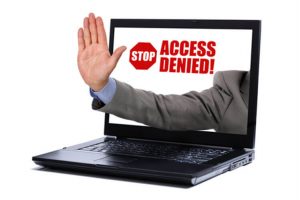
Absolute power in the hands of one individual can have devastating effects for any institution or organization.
When a whole country is run on the whims and fancies of one autocratic leader and bureaucracy, military and other law enforcing agencies simply follow orders—a process that is bound to spin out of control.
Free flow of information is guaranteed to citizens of this world, but countries like China have already been defying the international norms on freedom of press.
And the new one to join this club is Venezuela, the Latin American country ruled by Nicolás Maduro.
The latest threat is the imposition of internet censorship across the country that deprives the public of the right to know what is happening in their own nation.
A Gradual Deterioration of Freedom of Media
In the last year, Venezuela has seen widespread protests against its government and president for issuing constant attacks on the so-called Fourth Estate—one of the pillars of any good democracy, the media.
As the visuals of the protests were carried by television channels, the broadcasting stations were simply shut down.
People turned to other means of exchanging information like short messaging, but the Maduro government soon came down heavily on the mobile phone operator Movistar.
The only option left was the Internet, which is difficult to shut down. But the Venezuelan government immediately ordered surveillance on TV transmissions relayed online.
At least three such stations, Vivoplay.net, elcapitolio.tv and vpitv.com have already been impacted.
In a blatant act of internet censorship, the DNS servers of these online transmissions have been blocked.
All protestations to the supposedly autonomous bodies like Conatel, the national telecom commission, have been of no avail.
Even the United Nations intervened in this internet censorship by the Venezuelan authorities, with the UNHRC issuing a condemnation.
Censorship through Surveillance
If the Maduro government has succeeded in blocking the internet or online media transmissions, it could not have done so without indulging in some form of surveillance.
Even this is illegal. In a genuine democracy, any such tapping into communication channels can only be justified in extreme cases like terrorism.
And even then, concerned people need to obtain the necessary security clearances before indulging in internet censorship or any other media control for that matter.
The way the broadcast media has been virtually silenced is through denying the television channels the renewal of their expired licenses.
The result is that most of what the Venezuelan public get to see or hear today is all through the government-controlled media.
Moving to Block Social Media Sites

The last resort for the poor citizens of the country is the social media sites like Facebook, WhatsApp, Twitter, Instagram, Snapchat and so on.
It is true that many governments across the world have tried to censor the contents and communications on many of these sites for genuine reasons, such as halting terrorist activities.
However, they have found it difficult to enforce internet censorship on these sites.
Unfortunately, President Maduro has succeeded in intervening here as well, issuing an executive order carrying number 2489, which specifically authorizes internet censorship.
Invoking the emergency powers, this order officially permits internet policing. It also says the authorities have the powers to filter the contents on these sites.
Under this internet censorship order, if someone sends a message to another that the government feels it is in any way going to threaten its status, then that message or image or video can be deleted and the intended recipient cannot access the message at the other end.
The situation related to internet censorship has now reached such an extent that about 42 websites already stand banned or blocked.
The real fear is the number might be much more and the details might tumble out as days roll by. Those protesting all these actions feel that internet censorship and the blocking of websites cannot be legally justified.
Many affected organizations have jointly issued a public statement denouncing the actions of the Maduro government.
The basic public contention is that citizens’ human rights are being violated, and the country’s laws do not permit such autocratic decrees and execution by authorities.
